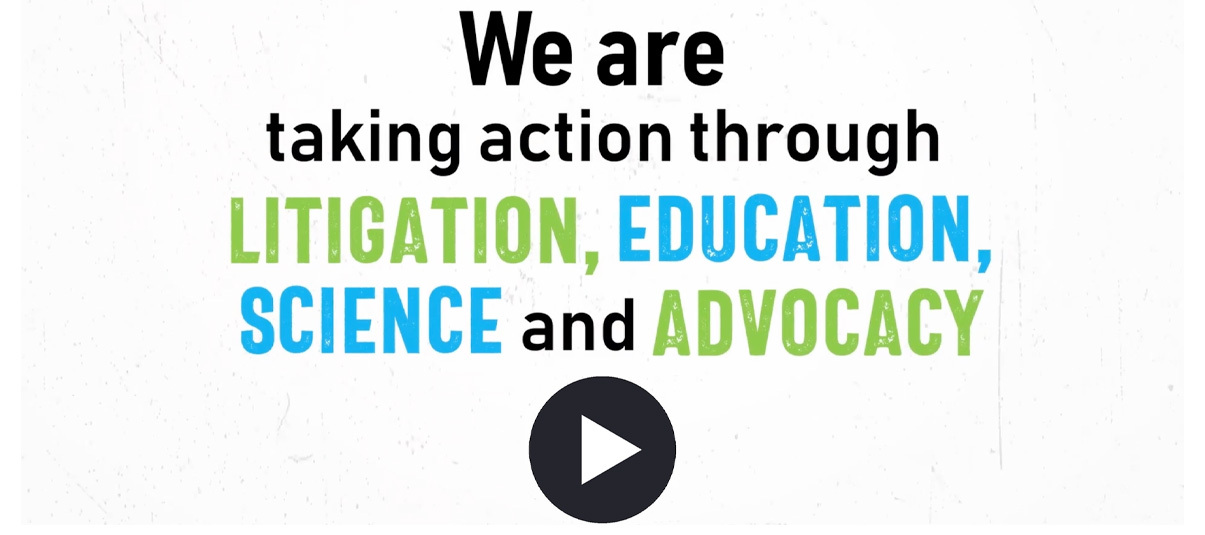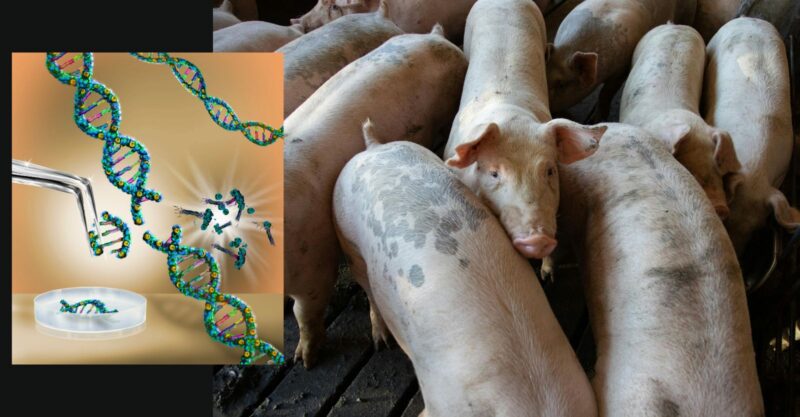Gene-Edited Pigs Could Soon Be on Canadian Dinner Plates — Without Real Public Debate
The Canadian government is considering approval of the first-ever gene-edited food animals for sale in Canada: pigs altered with CRISPR technology to resist a viral disease that affects pork production.
If given the green light, these would mark a historic shift in our food system — yet Canadians have had little say in whether we want genetically engineered animals on our plates.
From Salmon to Pigs: A Troubled History
Canada already has experience with genetically modified animals. In 2016, Health Canada approved AquAdvantage salmon, an Atlantic salmon altered with DNA from other fish. That approval came only after decades of secrecy, legal battles and public protests. In 2024, the company behind the GM salmon announced it was shutting down operations.
Another project, the EnviroPig from the University of Guelph, was designed to reduce phosphorus waste. It too collapsed under consumer pushback and lack of funding.
Now, industry is trying again — this time with gene editing, a newer technology marketed as “precise” and supposedly less controversial because it doesn’t involve inserting DNA from other species. But to many, the risks and ethical concerns remain.
Who Decides?
Currently, Canada does not have specific legislation for gene editing. Regulators rely on existing food and environmental safety laws and focus primarily on the “final product,” not the process used to create it.
The government recently introduced mandatory consultations for animals created with biotechnology, but these consultations are narrow and limited. Canadians are asked to comment on safety risks to health or the environment, while broader concerns — ethical, cultural, moral and social impacts — are excluded from consideration.
This means that questions like:
-
Who benefits from this technology?
-
Who bears the risks?
-
How will this reshape farming and food sovereignty?
-
What does it mean to alter animals at the genetic level for profit?
…are left largely unaddressed.
Why Public Trust Matters
History shows that rushing biotech animals into the marketplace without genuine public involvement leads to rejection and backlash. Canadians have consistently voiced concerns about being left out of the decision-making process — only to be told that “science knows best.”
As Gwendolyn Blue, professor at the University of Calgary, notes in The Conversation,
“resistance to biotechnology is not because of the public’s lack of knowledge … but a rejection of potential harms imposed by governments and industry without public input and consent.”
Speak Now
For the gene-edited pigs, the government had an extremely short window (one month) for public comment. Canadians deserve more than a checkbox consultation. We deserve meaningful dialogue about the kind of food system we want, the values we hold, and the risks we are being asked to accept.
As past experience with GM salmon and EnviroPig shows, public resistance has the power to halt projects that don’t align with societal needs and values.
This moment matters. Do we want gene-edited animals in our food supply? And if not, please contact your representatives.
Visit the Canadian Biotechnology Action Network (CBAN) for the latest information on all GE foods in Canada and ways to take action.
Original article from The Conversation
************************************************************************************************************************************

